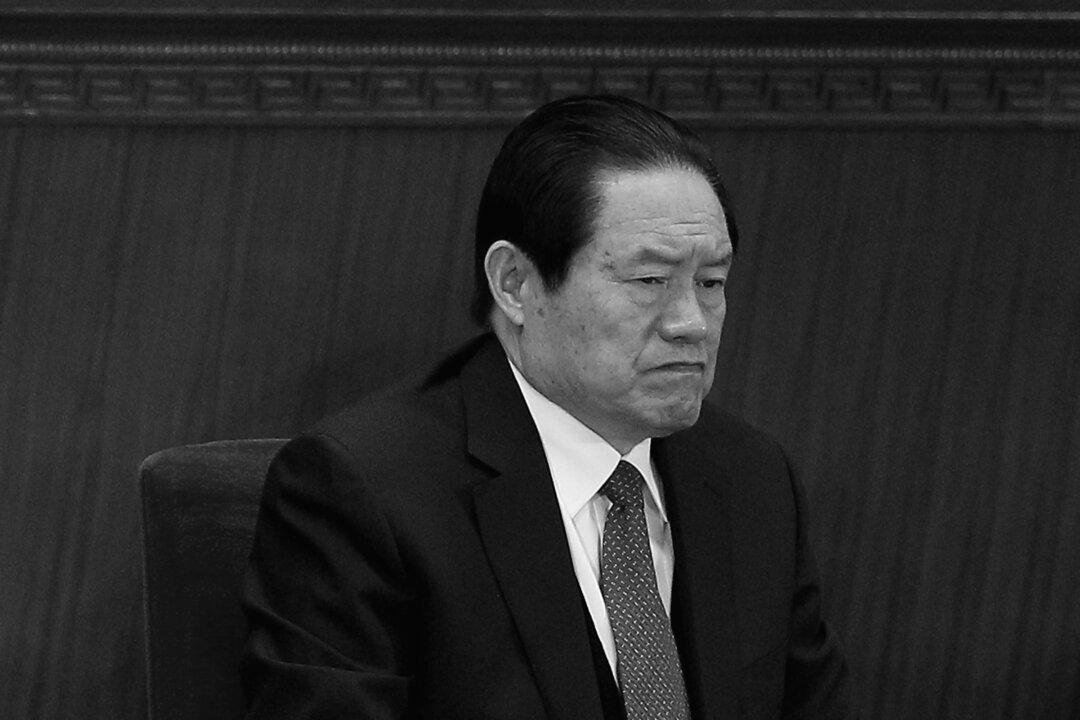On June 11, disgraced ex-security chief of the Chinese Communist Party, Zhou Yongkang, was sentenced to life imprisonment after nearly a year of investigation. Who is Zhou Yongkang and why is he such an important figure in the Chinese regime’s factional infighting?
1. He Was One of the Most Powerful Officials in China
The Political and Legislative Affairs Commission (PLAC) is the key to China’s internal security forces. In theory, whoever controls it controls all police, including the paramilitary People’s Armed Police, a veritable army of well over a million men, many of them equipped and trained to military standards.
From 2007, Zhou Yongkang served as director of the Commission, a position he held until the Wang Lijun incident precipitated his downfall.

Paramilitary police officers stand guard during the opening session of the Chinese People's Political Consultative Conference (CPPCC) at the Great Hall of the People in Beijing on March 3, 2015. Fred Dufour/AFP/Getty Images





